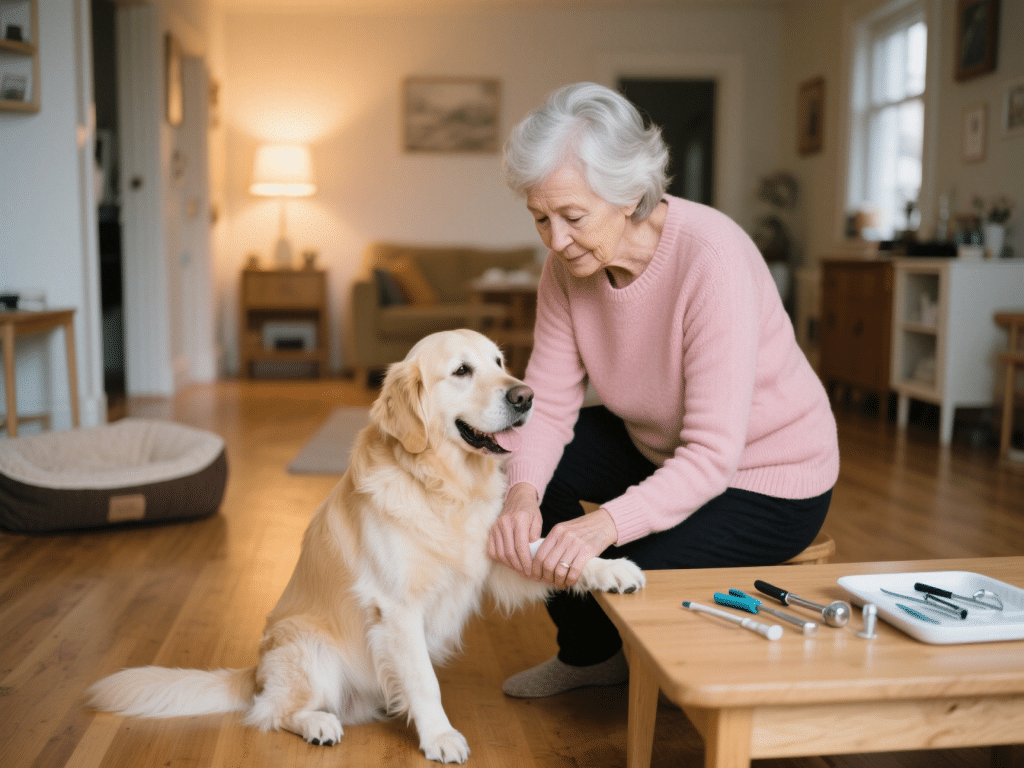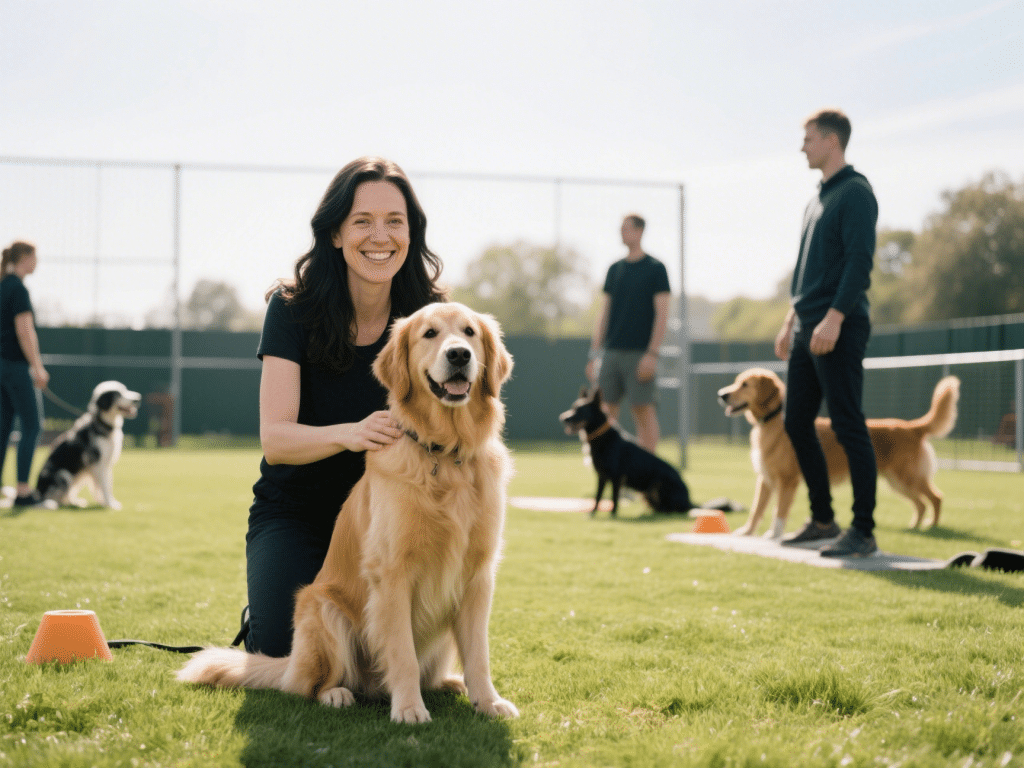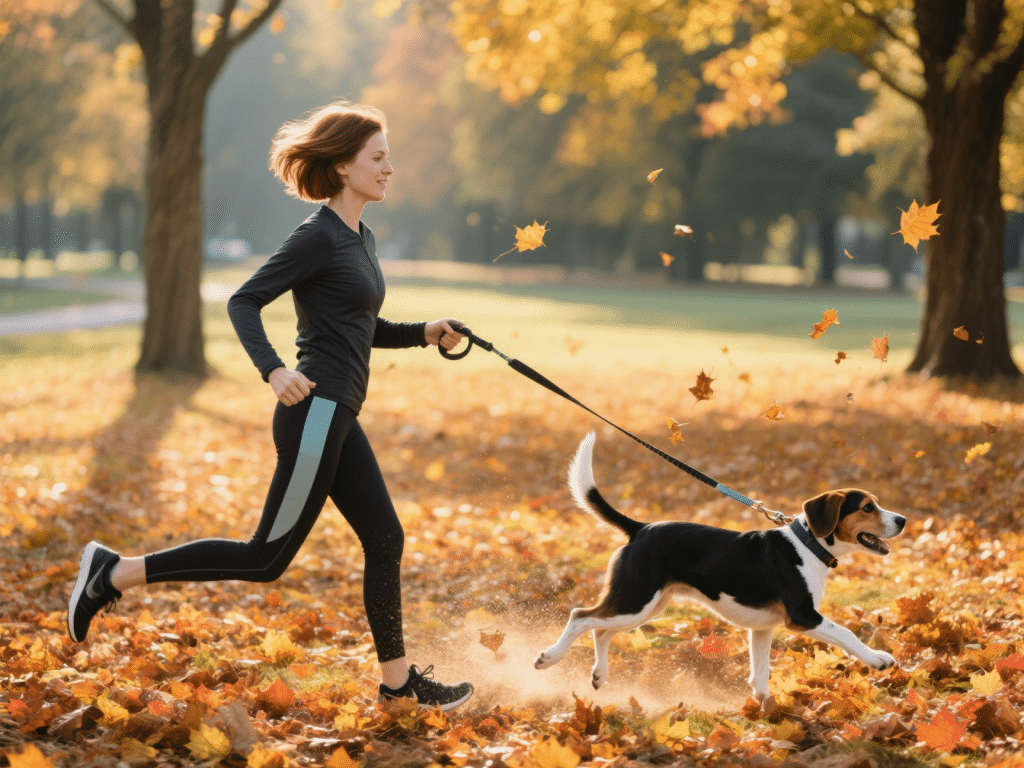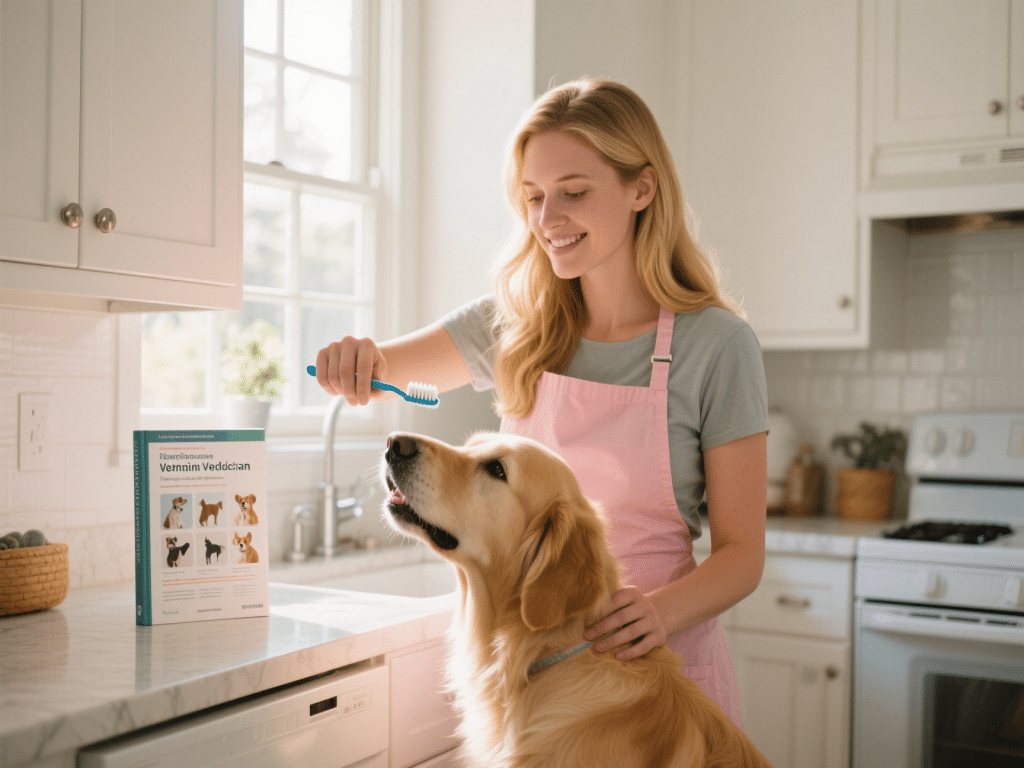Understanding Your Senior Dog’s Changing Needs
As dogs enter their senior years (typically 7+ years for larger breeds, 10+ for smaller ones), their bodies undergo significant changes. Reduced metabolic rate, joint wear, sensory decline, and slower organ function require proactive adjustments to their care. Regular veterinary check-ups every 6 months become crucial for early detection of age-related conditions like kidney disease, arthritis, or dental issues.
Critical Health Management Areas
Tailored Nutrition:
Lower Calories, Higher Quality: Switch to a senior-specific formula with reduced calories (to prevent obesity) but enhanced levels of easily digestible protein (to maintain muscle mass) and joint-supporting supplements (Glucosamine, Chondroitin, Omega-3s).
Fiber & Hydration: Increased fiber aids digestion, while wet food or added water promotes kidney health and combats dehydration.
Portion Control: Adjust portions based on activity level and vet guidance to avoid weight gain stressing joints.
Joint Care & Mobility Support:
Controlled Exercise: Maintain gentle, consistent walks (shorter, more frequent) to preserve muscle and joint flexibility. Avoid high-impact activities.
Environmental Modifications: Use non-slip rugs, ramps for stairs/cars, and orthopedic dog beds. Keep food/water bowls elevated.
Pain Management: Consult your vet about safe pain relief (NSAIDs, supplements like Dasuquin, or therapies like cold laser). Never administer human medication.
Cognitive Health (Canine Cognitive Dysfunction):
Mental Stimulation: Continue short training sessions, food puzzles, and scent games to keep their mind active. Novel toys help.
Routine & Environment: Maintain a predictable schedule and avoid rearranging furniture to reduce confusion and anxiety.
Veterinary Support: Discuss signs like disorientation, sleep disturbances, or house-soiling. Medications or specific diets (e.g., Hill’s b/d, Purina Neurocare) may help.
Sensory Support (Vision/Hearing Loss):
Safe Navigation: Avoid moving furniture. Use scent markers near stairs or obstacles. Approach from the front if hearing is impaired.
Verbal Cues & Touch: Rely more on gentle touch and clear verbal commands. Keep them leashed in unfamiliar areas.
Regular Checks: Cloudy eyes may indicate cataracts; consult your vet.
Dental & Grooming:
Oral Hygiene: Daily brushing is ideal. Professional cleanings under anesthesia are vital to prevent painful dental disease linked to systemic issues. Look for dental chews (VOHC approved).
Gentle Grooming: Senior skin is thinner and drier. Use soft brushes and moisturizing shampoos. Check for lumps, bumps, or skin infections regularly. Trim nails more often as activity decreases.
Comfort & Emotional Well-being:
Warmth: Older dogs feel the cold more. Provide warm bedding away from drafts. Consider sweaters in winter.
Patience & Reassurance: Be patient with slower movement or occasional accidents. Offer plenty of gentle affection and reassurance.
Quality Time: Prioritize calm, loving interaction. Their need for companionship remains strong.
Proactive Veterinary Partnership is Key
Open communication with your veterinarian is paramount. Discuss bloodwork (CBC, chemistry panel, urinalysis) annually or bi-annually to monitor organ function. Be vigilant for subtle changes in appetite, thirst, urination, bowel habits, energy levels, or behavior – these are often the first signs of underlying problems. Early intervention dramatically improves outcomes and quality of life for your aging companion.
Conclusion:
Caring for a senior dog requires dedication and adaptation, but the rewards of ensuring their golden years are comfortable and happy are immense. By focusing on tailored nutrition, joint support, cognitive health, sensory needs, diligent veterinary care, and abundant love, you can help your loyal friend age gracefully and enjoy their later life to the fullest. Prioritize their comfort, cherish every moment, and celebrate the unwavering bond you share.










Comments on " Caring for Senior Dogs: Essential Health Tips for Older Canines" :